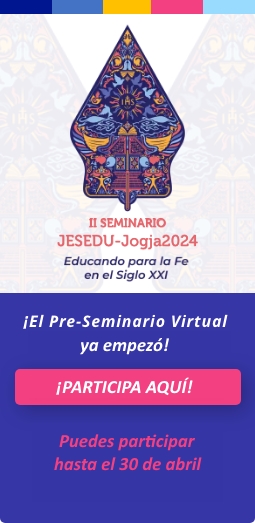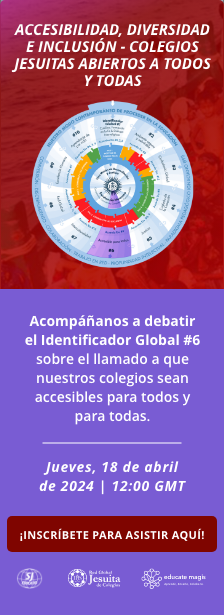In early February, leaders of secondary schools in the United States Central & Southern Province gathered for the biannual meeting in Dallas. The theme of this year’s conference was the 2017 JESEDU Congress in Rio de Janeiro. At the meeting we explored the many ways we could implement the 13 action items promoted by the Congress. Chief among these were ways to bolster the Global Network of Schools. We learned about various initiatives, such as the Red Chair Project, the Educate Magis Global Map, and the JRS Walk a Mile Simulation. We also explored the many resources available through Educate Magis and considered ways to make our schools more environmentally friendly.
Overall, presidents and principals were grateful for the resources provided by JESEDU and Educate Magis, and shared their intention to pursue several of these initiatives in the coming academic year.
Here are some of my extended reflections after the meeting.
- How has JESEDU-Rio influenced the work I am doing?
The JESEDU Congress has influenced me by sharpening my focus when I visit schools and help run programs for schools, trying to be more mindful of the foci of the meeting and the steps outlined in the action statement. As one example, when I visit a school now and hear about projects they’re doing with other schools or in other countries, I always ask if they’re seeking out Jesuit institutions to partner with. Another example pertains to science and ecology. When I meet with science teachers, I invite them to consider the «Healing Earth» online textbook published by Loyola University Chicago. If I’m really attentive, I also try to remind teachers about Educate Magis and connecting their students this way, although I usually run out of time in sessions with teachers before getting to promote the site.
- How do I think the schools in the United States Central and Southern Province can benefit from the implementation of the Delegates´ Action Statement?
I think the most important way our province schools can benefit from the action statement is creating more global relationships among peer Jesuit institutions throughout the world. We’ve done a much better job in the past decade or so getting our schools to collaborate more within countries and assistancies, and hopefully we can continue this momentum by broadening those networks to apply across oceans and continents. I would also very much like to see our schools become more ecologically minded, especially in light of GC 36 and Laudato Si’. Despite good work from certain people in our schools, I fear that ecology remains a low priority in most of our communities.
- How do I think the Global Network or Educate Magis can support me and my schools in responding to the JESEDU-Rio Action Statement?
The easiest way for these things to happen is if our schools can be offered concrete ways or programs to pursue these goals rather than creating something anew on their own. Many such programs exist, namely the Red Chair Project, the Ignatian Carbon Challenge, the JRS Walk a Mile simulation, and the various resources on Educate Magis (particularly the Global Map and the Global Citizenship courses). Many of our educators are happy to implement things that fulfill the Society of Jesus’ global mission in education, but oftentimes they struggle to find time and resources to pursue these things on their own. When something already exists that they can tap into, this makes it much more likely for them to pursue these goals.
- What are my most important next steps after this successful meeting?
I think the most important steps are to keep reminding the delegates regularly (perhaps via their own conference networks) to encourage schools to implement the action plan, although this will have to happen gradually and incrementally. It would probably be good if many of us could check in with one another at the conference level at least once a year to measure our progress. But more important is providing resources for our schools, so hopefully Educate Magis can keep producing more programs and resources for our schools to use and help connect our institutions around the globe.
Geoffrey Miller
Provincial Assistant for Secondary Education
United States
Inicia sesión o Hazte miembro
para crear y ver comentarios

